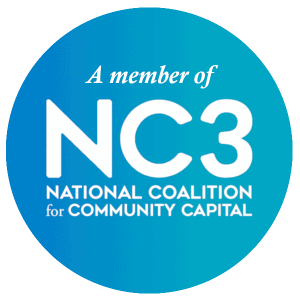Photo by rawpixel on Unsplash
*Editor’s Note: This is a guest blog by Brett Heeger
When looking to start a business, two essential ingredients are: 1) people, and 2) startup capital. Both of these can come from your community thanks to the unique but natural combination of worker cooperatives and crowdfunding!
What’s a Worker Cooperative?
Worker cooperatives are businesses owned and managed by their workers, for the benefit of those workers. Typically, every worker-owner gets one vote in decision making, and any profits are distributed based on patronage of the workers, such as hours worked. In other words, worker-owners are rewarded for the labor they put in.
There are lots of benefits to worker cooperatives. These democratically-run businesses are intimately connected to the communities where they are based because the worker-owners naturally come from that community! And there’s job security for workers, because even in tight times the worker-owners prioritize keeping their jobs around. Worker cooperatives can be found in a wide range of industries—from car washes to coffee shops, bakeries and house cleaners, and many more!
Although a limited liability company (LLC) or other entity types might also choose to operate as a co-op, in California we also have a special type of entity called a California Cooperative Corporation. (See Cal. Corp. Code 12200, et. seq.). There are lots of considerations when choosing the entity type for your business, and many other states have co-ops as formal entities too, so you will want to consult an attorney before choosing.
What are Securities Laws?
Outside of donation-based and rewards-based crowdfunding, asking people for money for your business likely touches the world of securities law. Generally, you are offering a security when you invite people to put money into your venture in exchange for the possibility of a financial return. For example, you are offering a security when you ask for equity investments and most loans (other than a regular bank loan), or when you offer any investments related to these items, such as options or convertible notes. As you can imagine, there are lots of state and federal rules designed to protect potential investors from being tricked out of their money. Even with the best intentions, failure to comply can come with very serious consequences. For that reason, you should consult with an attorney before trying to raise money for your business.
Offering and selling securities for your business can be time consuming and expensive, but both federal and state governments have come up with exemptions from the normal process to make things easier for small businesses.
Regulation Crowdfunding (“Reg CF”) is a popular and relatively new exemption utilized by small businesses to engage in online crowdfunding campaigns involving securities. Although there are limits to how much money you can raise in total and from each person, for many small businesses a Reg CF campaign can be more than enough to get started, and can serve as a great introduction to equity crowdfunding. Reg CF campaigns must operate through registered online funding portals that, among other things, help ensure that all projects are providing certain key information to potential investors. Reg CF investors are not limited to angel or venture capital investors, but instead can include everyone from friends and family to customers, neighbors, and more! There are lots of different portals that may target specific companies or investment types, so research your options carefully or seek out trusted crowdfunding advice before choosing a portal and launching a campaign.
Cooperatives are a natural fit for crowdfunding!
First, since crowdfunding relies on reaching a large crowd, having more owners means you will have a larger set of networks to access.
Second, many of the advantages of cooperatives—community focus, local mission, human connection to the business—can really resonate with potential investors, especially those that are attracted to crowdfunding investments.
Third, although cooperatives across the country can take advantage of Reg CF to launch a crowdfunding campaign, California Cooperative Corporations can access as a special crowdfunding exemption from state and federal securities law registration requirements.
Cooperatives are such a natural fit with crowdfunding that the California legislature recently passed a special securities law exemption exclusive to California Cooperative Corporations. These entities can now offer shares for up to $1,000 each to Community Investors who live in California. (See, Cal. Corp. Code 25100(r); 12238(f)). Community Investors are what they sound like—investors who are not active worker members. Like most crowdfunding investors, Community Investors are generally passive, with a few very limited approval rights. (Cal Corp. Code 12253).
Even though Community Investor shares can only raise $1,000 from each person and are limited to California investors, some of the other restrictions that would otherwise limit a Reg CF offering don’t apply. For example, the total amount raised by the company can be higher than under Reg CF, and you don’t have to use a funding portal.
When structuring and planning your business, there are lots of great reasons to consider worker cooperatives. And there are lots of great reasons to consider crowdfunding. Could combining the two be the right combination to get your business off of the ground?
Important: This discussion provides general information guided by federal and California law, and is not legal advice. If you need legal advice, please contact a lawyer. Laws and regulations may change over time, and there are substantial differences in other states and jurisdictions.
Editor’s Note: Crowdfund Better is actively working to solve the issues around crowdfunding education for all. We’ve developed The Crowdfunding Opportunity online course to help you navigate the crowdfunding ecosystem to fund your business.










HERE’S A NEW IDEA – AND A GOOD REASON TO GO CO-OP.
Thanks so much for your support and sharing this with your community Bruce!
I have began to participate as a board member in the Louisville Association for Community Economics (LACE) and this article is proof to me that crowdfunding and worker-owned cooperatives can work hand-in-hand to build community based business while providing opportunities for community members to build wealth. I am a firm believer in that if people invest local they will spend local because there is a financial benefit provided to them. They will also become the leading brand advocates for the these businesses. These are win-win situations for developing community level economic and business ecosystems. Great Article Kathleen!!
Do you recommend any specific crowd funding platforms?
Hello Andrew.
Even though your question seems straightforward, it is a bit complicated to answer. Depending on the type of crowdfunding campaign you’re looking to do, there are a variety of platforms to choose from.
When you signup for our crowdfunding newsletter you’ll have access to our free, comprehensive Crowdfunding Cheat Sheet that has verified & trusted crowdfunding platforms across all types of crowdfunding. Additionally you’ll be able to access our 5-question Crowdfunding Self-Assessment to help you determine if crowdfunding is a good fit for your needs.